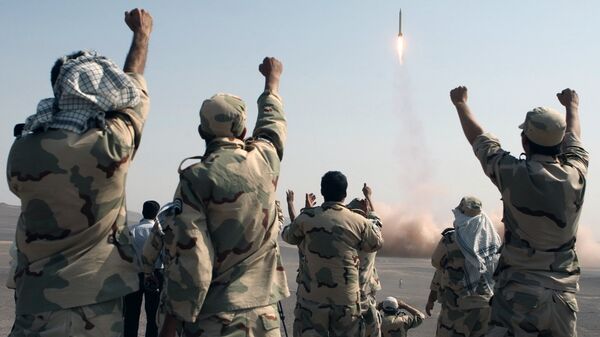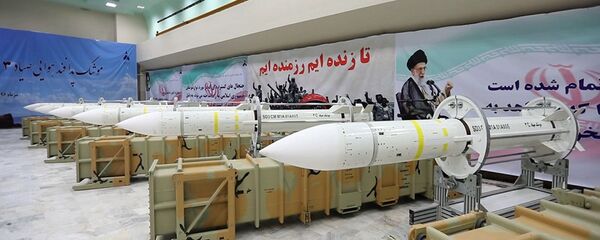Iranian Foreign Ministry Spokesman Bahram Qassemi has reiterated Tehran's stance that the issue of the Islamic Republic's missile program is beyond debate, according to Iran's Fars news agency.
Referring to German Chancellor Angela Merkel, Qassemi stressed that "she and her advisors should be aware that the [Iran] nuclear deal, [also known as the Joint Comprehensive Plan of Action (JCPOA)] and Iran's missile program are two separate issues and are not related."
READ MORE: Iran to Unveil New Fighter Jet, Missile Development Stays Top Priority — Report
"Iran's missile issues are not negotiable," Qassemi pointed out.
His statement came after Merkel touched upon the issue ahead of her talks with Russian President Vladimir Putin in Berlin last Saturday.
"Of course, we will discuss Iran. We want to preserve the JCPOA but we are concerned about Iran's activities, whether it is a missile program or the situation in Syria," Merkel said.
READ MORE: German Intel Claims Iran Trying to Illegally Acquire Tech for Missile Program
Earlier, Iranian Defense Minister Amir Hatami made it clear that Tehran would continue to strengthen its missile defense capability regardless of its enemies' threats and sanctions.
"Iran's missile power is a defensive deterrent power and as I had promised our dear people, I will not spare any efforts to increase the country's missile capabilities and certainly, we will increase our missile power on a daily basis," he stressed, warning "any foreign power" against meddling in its "defense and military affairs."
In November 2017, French President Emmanuel Macron said that Iran's ballistic missile program was "very worrying" and that additional measures against the Islamic Republic should be included in the 2015 Iran nuclear deal, which should not be canceled.
READ MORE: Iran Unveils New Radar-Evading Anti-Ship Missile Amid Hormuz Strait Tensions
US President Donald Trump announced Washington's withdrawal from the JCPOA in early May, also pledging to reinstate the anti-Iranian sanctions which were scrapped after the signing of the nuclear deal in 2015.





